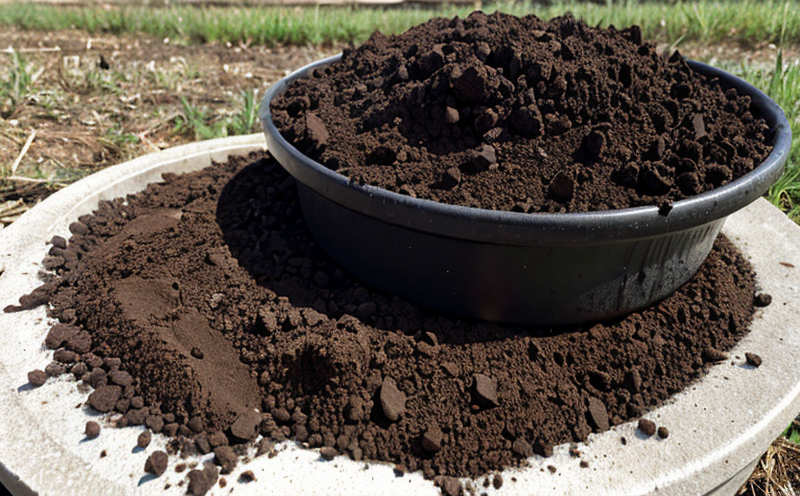EN 16198 Phosphorus in Residual Byproducts
The European standard EN 16198 provides a standardized method for determining the amount of phosphorus present in residual byproducts. This is critical for waste management and recycling testing, especially when dealing with materials that could potentially release phosphates into the environment. Phosphorus can be found in various forms, including organic and inorganic compounds, which makes accurate measurement essential for compliance and environmental protection.
Residual byproducts often arise from industrial processes such as mining, agriculture, or wastewater treatment. These materials are generated during the separation or purification of resources and may contain trace amounts of phosphorus that could influence their disposal methods. Understanding these levels helps in assessing potential risks associated with landfills, waterways, and soil contamination.
The testing procedure outlined in EN 16198 involves several steps to ensure accurate results. Specimens are typically prepared by drying the sample at a controlled temperature before digestion using strong acids like nitric acid or perchloric acid. The digested solution is then analyzed via atomic absorption spectroscopy (AAS) or inductively coupled plasma optical emission spectrometry (ICP-OES). This ensures that only phosphorus from the original byproduct is measured, excluding any interference from other sources.
Accurate measurement of phosphorus levels in residual byproducts using EN 16198 is particularly important for industries like agriculture, where over-application of fertilizers can lead to eutrophication. By monitoring these levels, companies can adjust their practices to minimize negative environmental impacts while still meeting production demands.
The standard also emphasizes the importance of sample preparation and handling procedures to prevent contamination. This includes using appropriate glassware and ensuring all equipment is clean before use. Proper training for personnel involved in sample collection and analysis is crucial to maintain consistency across different batches and laboratories.
Compliance with EN 16198 ensures that companies adhere to international standards set forth by the European Committee for Standardization (CEN). This helps build trust among stakeholders, including regulators, consumers, and investors. Accurate phosphorus content data can influence decisions regarding waste management strategies, product formulations, and environmental policies.
Understanding the implications of phosphorus in residual byproducts is vital not only for regulatory compliance but also for sustainable business practices. By adopting this standard, organizations demonstrate their commitment to responsible resource use and environmental stewardship. This approach enhances corporate reputation and fosters long-term sustainability within the industry.
Why It Matters
The importance of phosphorus measurement in residual byproducts cannot be overstated, especially given its role as a key nutrient for plant growth but also as an environmental pollutant when present in excess. Phosphorus can enter water bodies through runoff from agricultural lands or improperly managed landfills, leading to harmful algal blooms and reduced oxygen levels in aquatic ecosystems.
Accurate measurement allows industries to manage their waste streams more effectively, ensuring that only safe materials are released into the environment. This reduces the likelihood of accidental pollution incidents and helps companies comply with increasingly stringent environmental regulations.
The standard also supports research and development efforts aimed at improving recycling processes and developing new products. By understanding exactly how much phosphorus is contained within a given batch of recycled material, manufacturers can optimize their operations to produce higher quality outputs while minimizing adverse effects on the environment.
Moreover, compliance with EN 16198 enhances public confidence in companies by demonstrating transparency regarding their environmental impact. Investors and customers alike are more likely to support businesses that prioritize sustainability practices, making this standard valuable beyond mere regulatory requirements.
Benefits
Implementing the EN 16198 Phosphorus in Residual Byproducts test brings numerous benefits to organizations involved in waste management and recycling. One significant advantage is improved operational efficiency, as precise measurements enable better decision-making regarding disposal methods and potential reutilization opportunities.
Another key benefit is enhanced regulatory compliance, which can protect companies from fines or legal action due to non-compliance with environmental laws. By adhering to this standard, businesses show their commitment to responsible resource management and sustainable practices.
The test also facilitates research and development activities by providing reliable data that can inform product innovation and process improvements. Understanding the exact composition of residual byproducts allows for targeted adjustments in manufacturing processes or formulation recipes to enhance overall performance while reducing environmental impact.
Furthermore, adopting this standard promotes stakeholder engagement and trust-building initiatives within communities surrounding facilities that handle waste materials. Transparent communication about testing procedures and results fosters goodwill among local residents and authorities who rely on accurate information regarding facility operations.
International Acceptance and Recognition
The European standard EN 16198 for phosphorus determination in residual byproducts enjoys widespread recognition across multiple countries. Its acceptance extends beyond borders into regions like North America, where many states have adopted similar guidelines to ensure consistent quality control measures are implemented.
Recognized laboratories around the world often seek accreditation based on their ability to perform tests according to this international standard. This certification demonstrates proficiency in handling complex samples and producing reliable results that meet global expectations for accuracy and reproducibility.
Incorporating EN 16198 into daily operations helps organizations stay ahead of changing regulatory landscapes, ensuring they remain compliant with current standards while preparing for future developments. Compliance with this standard not only meets existing requirements but also positions enterprises as leaders in environmental responsibility within their industries.





